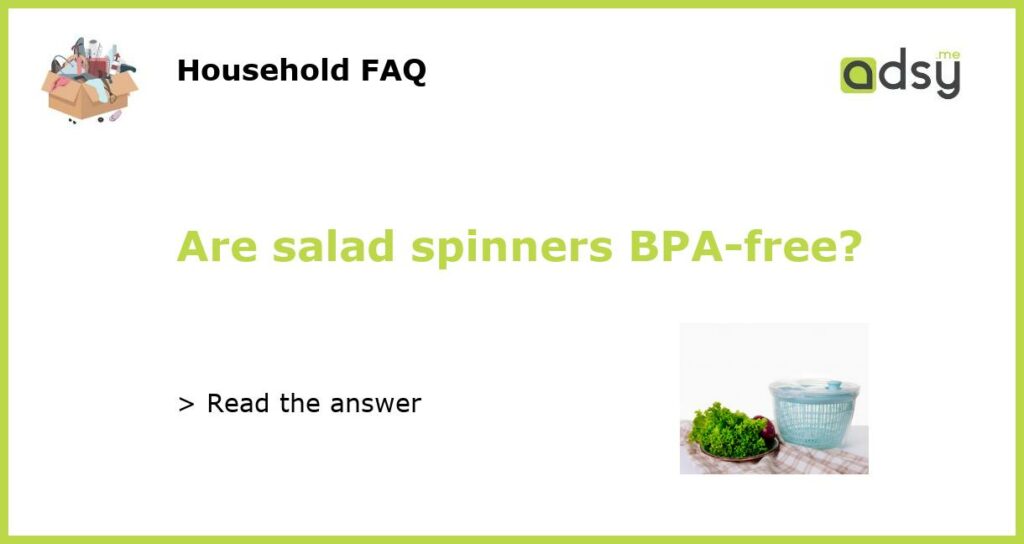Are salad spinners BPA-free?
Salad spinners have become an essential tool in many kitchens, as they allow for easy and efficient drying of freshly washed greens. However, in recent years, concerns have been raised about the potential presence of Bisphenol A (BPA) in certain kitchen appliances, including salad spinners. To address these concerns, let’s explore the topic of BPA in salad spinners and whether or not they are BPA-free.
Understanding BPA
Bisphenol A, or BPA, is a chemical compound commonly used in the production of certain plastics and resins. It has been used for decades in the manufacturing of various consumer products, including food storage containers, water bottles, and even baby bottles. However, in recent years, concerns have been raised about the potential health risks associated with BPA exposure.
The dangers of BPA
Studies have suggested that BPA may have hormonally active properties, meaning it can mimic the effects of certain hormones in the body. This has raised concerns about the potential health risks of BPA exposure, especially when it comes to long-term and frequent contact with the chemical.
Some potential health risks associated with BPA exposure include an increased risk of certain cancers, reproductive disorders, and developmental issues in children. While more research is needed to fully understand the extent of these risks, many individuals are opting for BPA-free alternatives in their everyday lives.
Are salad spinners BPA-free?
The good news is that most modern salad spinners on the market are indeed BPA-free. Manufacturers have recognized the potential health concerns associated with BPA and have taken steps to ensure that their products are free from this chemical compound.
When shopping for a salad spinner, it is always a good idea to check the product’s packaging or specifications to confirm that it is labeled as BPA-free. Additionally, many reputable manufacturers will explicitly advertise their products as being free from BPA in their marketing materials or on their websites.
Best practices for using BPA-free salad spinners
While BPA-free salad spinners offer peace of mind for individuals concerned about potential chemical exposure, there are still best practices to follow to ensure food safety and minimize any potential risks.
First, it is important to properly clean and dry your salad spinner after each use. This helps to prevent the buildup of bacteria or other harmful microorganisms that could contaminate your food. Be sure to follow any specific cleaning instructions provided by the manufacturer.
Additionally, consider using a separate salad spinner for different types of foods, such as separating your leafy greens from fruits or vegetables. This reduces the risk of cross-contamination and allows for better organization in your kitchen.
Lastly, it is always a good idea to inspect your salad spinner regularly for any signs of wear or damage. Cracks or broken parts could potentially harbor bacteria or other harmful substances, so it is important to replace any damaged components or replace the entire spinner if necessary.
In conclusion, most salad spinners available on the market today are BPA-free. However, it is always a good idea to check product labels or manufacturer information to confirm that the specific salad spinner you are considering is indeed free from BPA. By following best practices for usage and maintenance, you can ensure a safe and enjoyable salad-spinning experience in your kitchen.






